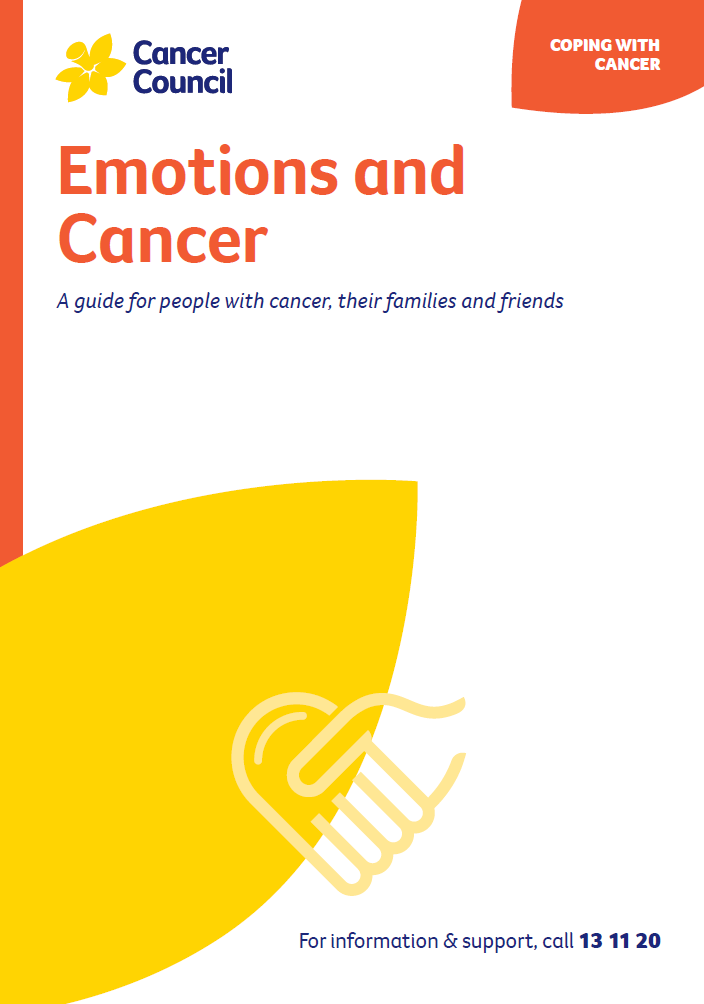- Home
- About Cancer
- Coping with a diagnosis
- Emotions and cancer
- Getting support
- Other sources of support
Other sources of support
It’s not unusual for people to find themselves alone at some points in their life. Having a serious illness when you feel that you have no close family or friends can be especially hard, but you don’t have to try to cope by yourself.
Getting support from local services
The hospital social worker can link you with local services. Other sources of support could include not-for-profit organisations, including Cancer Council and cancer-specific groups (such as Breast Cancer Network Australia and Prostate Cancer Foundation of Australia), and faith-based groups. If you have children, formal or informal school-based assistance, such as the school counsellor, may be available. Learn more about some sources of practical and financial assistance.
Talking to others about your diagnosis
If you want to talk about the diagnosis or how you’re coping with treatment and side effects, you may want to connect with a support group, either in person, over the phone or online. In a support group, people can share tips and insights with others who have gone through, or are going through, a similar experience.
Some people say they can be more open and honest in a support group because they aren’t trying to protect those close to them. You may find it easier to talk about your diagnosis and treatment, your relationships with friends and family, and your hopes and fears for the future.
To find out which support groups are available in your area, call Cancer Council 13 11 20 or ask your nurse or social worker.
→ READ MORE: When do you need professional support?
Podcast: Coping with a Cancer Diagnosis
Listen to more of our podcast for people affected by cancer
More resources
Dr Michael Murphy, Psychiatrist, NSW Health, and Conjoint Senior Lecturer, UNSW, NSW (clinical review); A/Prof Anne Burke, Co-Director, Psychology and Allied Health Lead, Cancer, Central Adelaide Local Health Network and The University of Adelaide, SA; Hannah Chen, Psychologist, Cancer Council Queensland; Hazel Everett, Clinical Nurse Consultant, Cancer Services, St John of God Subiaco Hospital, WA; Shona Gates, Senior Social Worker, North West Cancer Centre, TAS; Dr Jemma Gilchrist, Senior Clinical Psychologist, Mind My Health and Crown Princess Mary Cancer Centre, Westmead, NSW; Sandra Hodge, Consumer; Dr Michael Murphy (see above); Caitriona Nienaber, 13 11 20 Consultant, Cancer Council WA; Dr Alesha Thai, Medical Oncologist, Peter MacCallum Cancer Centre, VIC; Alan White, Consumer.
View the Cancer Council NSW editorial policy.
View all publications or call 13 11 20 for free printed copies.

